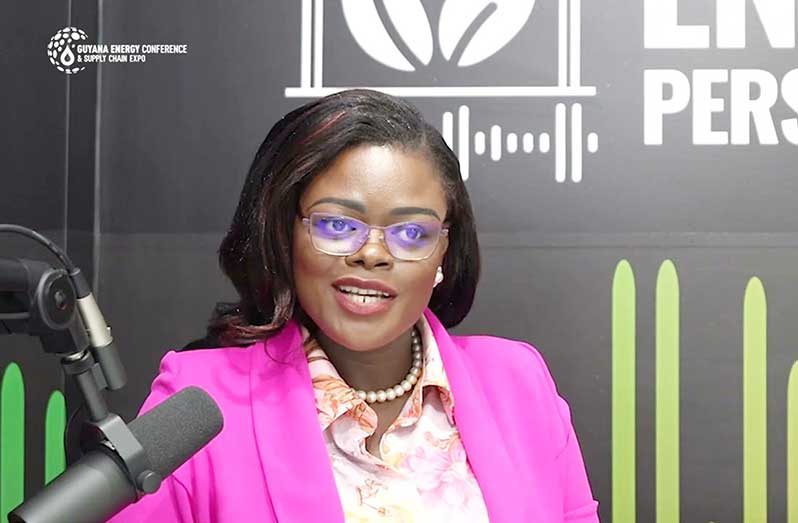THE transformative potential of strategic investment is exemplified by the Greater Guyana Initiative (GGI), which has emerged as a pivotal driver of growth in a swiftly evolving economic environment.
The GGI was launched with the overarching goal of fostering sustainable growth in Guyana.
An ExxonMobil-led partnership working in Guyana’s Stabroek Block is leading this US$100 million project, which is anticipated to last for 10 years. The initiative is taking a comprehensive strategy to support the country’s development across various sectors.
In a recent episode of the Energy Perspectives Podcast—powered by the Guyana Energy Conference and Supply Chain Expo—Alicia Bess-Anderson, Adviser on the GGI for ExxonMobil Guyana, highlighted the initiative’s achievements thus far, with a particular focus on its role in education, workforce development and food security.
According to her, the initiative is designed to address key developmental challenges while leveraging opportunities presented by the country’s rapidly expanding oil and gas industry.
Recognising the importance of human capital in sustaining long-term economic growth, the initiative has channeled significant resources into educational programmes.
She stated that the GGI has upgraded numerous facilities, including laboratories, at the University of Guyana (UG). Additionally, in order to improve the technical field, the initiative GGI teamed up with the Council for Technical and Vocational Education Training and the Ministry of Education to improve the welding and electrical programmes and to introduce basic industrial safety training.
The adviser shared that GGI has also partnered with the UG to launch the Annual Regional Accelerator for STEM [Science, Technology, Engineering and Mathematics]. She shared that the STEM project is helping young boys and girls to explore opportunities in this field.
In addition to education, the Greater Guyana Initiative has made substantial investments in enhancing the country’s food security. Bess-Anderson explained: “We have projects centred in the hydroponics space as well as poultry raring in the hinterland.”
She pointed out that these projects will assist the Caribbean Community (CARICOM) in achieving its goal of reducing the region’s high food import bill by 25 per cent by 2025.
Moreover, she explained that the GGI funds the Centre for Local Business Development (CLBD), which assists small and medium-sized enterprises (SMEs) to grow their capacity and improve their competitiveness to gain contracting opportunities. According to her, the initiative pays special focus on providing opportunities for female entrepreneurs.
“Female entrepreneurs have been able to get access to different levels of training courses… from safety elements to financial elements, leadership, empowerment and so much more. One aspect would be the active mentorship that comes with that programme to ensure that females are given the support to not only leverage the growth of their businesses but the growth of themselves.”
Bess-Anderson emphasised the challenges women encounter in the oil and gas industry, which has traditionally been male-dominated. “But over the years, I’ve seen the glass ceiling being broken and basically barriers being removed to ensure women can actively take up spaces.”
She also noted the increasing presence of women in other male-dominated fields, such as agriculture, construction, and mining. She noted that this demonstrates how women are making their mark in non-traditional sectors, contributing significantly to the economy’s growth and workforce development and urges companies to invest in women.
For those keen on joining the oil and gas industry, Bess-Anderson encouraged them to take the leap, while emphasising the importance of maintaining a work-life balance, having a strong support system, and building a network. “Think big; if you can dream it, you can achieve it. Take a risk, step out of your comfort zone. Remember, you are not just doing this for yourself but for the benefit of your [children] and your family… so that you can leave a lasting legacy…”
In February 2021, the GGI was created by the Stabroek Block co-venturers ExxonMobil, Hess Guyana Exploration and CNOOC Petroleum Guyana to support capacity development across the country for the next decade. The companies pledged GY$20 billion (US$100 million) to support the initiative, which includes programmes focused on building human capacity, advancing education, improving healthcare and promoting sustainable economic development in Guyana.



.jpg)










